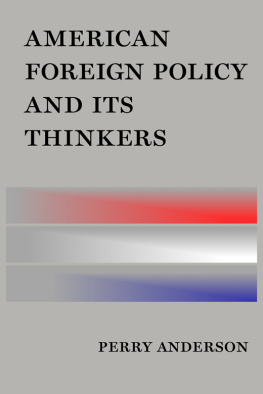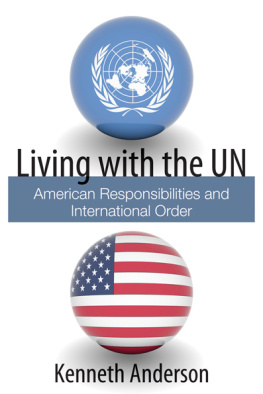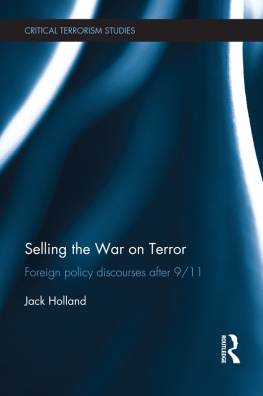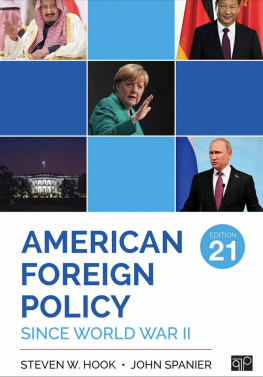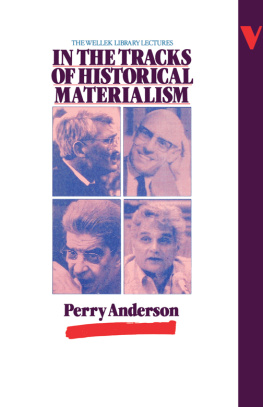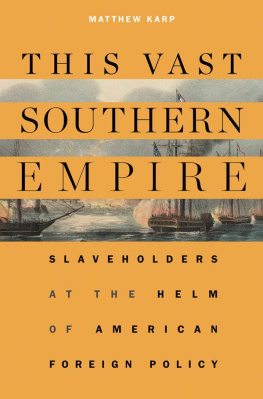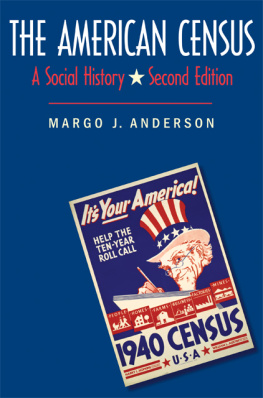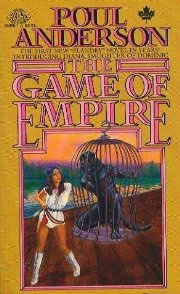AMERICAN FOREIGN
POLICY AND ITS THINKERS
Perry Anderson

This hardback edition first published by Verso 2015
Imperium and Consilium first published in New Left Review 83,
September/October 2013 and republished here by kind permission
Perry Anderson 2015
All rights reserved
The moral rights of the author have been asserted
1 3 5 7 9 10 8 6 4 2
Verso
UK: 6 Meard Street, London W1F 0EG
US: 20 Jay Street, Suite 1010, Brooklyn, NY 11201
www.versobooks.com
Verso is the imprint of New Left Books
ISBN-13: 978-1-78168-667-6
eISBN-13: 978-78168-668-3 (US)
eISBN-13: 978-78168-702-4 (UK)
British Library Cataloguing in Publication Data
A catalogue record for this book is available from the British library
Library of Congress Cataloging-in-Publication Data
Anderson, Perry.
American foreign policy and its thinkers / Perry
Anderson.
pages cm
Originally published: London : New Left Review Ltd.,
2013.
ISBN 978-1-78168-667-6 (hardback) ISBN 978-1-78168-668-3 (ebook)
1. United StatesForeign relations19451989.
2. United StatesForeign relations1989
3. ImperialismHistory20th century.
4. ImperialismHistory21st century. I. Title.
E744.A64 2014
327.7300904dc23
2014021672
Typeset in Minion Pro by MJ & N Gavan, Truro, Cornwall
Printed in Sweden by ScandBook AB
CONTENTS
The two parts of this book, Imperium and Consilium, offer an account of the American imperial system that reaches across the world today. It is reasonable to ask what particular contribution they could make to a subject that has attracted a large existing literature, composed essentially of diplomatic history and geopolitical strategy. The scope of Imperium differs from much of the former in three ways, temporal, spatial and political. The first is a question of chronological span. An extensive body of research, much of it of the highest quality, exists on American foreign policy. But it characteristically divides into widely separate bodies of historical writingprincipally, studies of US territorial and overseas expansion in the nineteenth century; analyses of US conduct in the struggle against the USSR during the Cold War; and discussions of US power projection since the last decade of the twentieth century. What is attempted here, by contrast, is a connected understanding of the dynamics of American strategy and diplomacy in a single arc from the war on Mexico to the war on Terror. The second difference is a question of geographical attention. Coverage of the exercise of US imperial power has tended to focus either on its operations in what was once the Third World of former colonial lands, or on its battle with what was once the Second World of communist states. There has on the whole been less concern with the objectives pursued by Washington within the First World of advanced capitalism itself. Here an effort is made to keep all three fronts of US expansion concurrently in focus.
Finally, there is a political difference. Much of the literature on American imperial power is critical of it, oftenthough, as I will note, by no means invariablywritten from standpoints that can be regarded as broadly of the left, as distinct from mainstream celebrations of the role of the United States in the world, which tend to come from the centre or right of the ideological spectrum. A common characteristic of this writing on the left is not only criticism of the global hegemony of the United States, but confidence that it is in steepening decline, if not terminal crisis. Radical opposition to the American empire, however, does not require reassurance of its impending collapse or retreat. The changing balance of forces at whose centre its hegemony continues to lie must be reckoned objectively, without wishful thinking. How far much of the American elite itself is from any such sober stocktaking forms the subject of the second part of this book, Consilium, which looks at the current thinking of its strategists. This forms a system of discourse about which relatively little has been written. The survey of it here offers a first synoptic account. To this I have added, in an annexe, an earlier consideration of one of the best known of all its contemporary minds.
I owe composition of Imperium and Consilium to a year at the Institute of Advanced Studies in Nantes, finishing the last in October 2013; they first appeared in New Left Review in the following month. In the time that has elapsed since, the international scene has been dominated by a number of developments, in the extended Middle East, the former Soviet Union and the Far East, that have renewed debate about the condition of American power. A brief postscript considers these and their upshots, still ongoing.
Perry Anderson
October 2014
I owe special thanks to the Institut dEtudes Avances of Nantes, in whose ideal environment the major part of the research and writing of this book was done; to Anders Stephanson, for his critical comments; and to Susan Watkins, the editor of New Left Review, where the text was first published in October 2013, whose injunctions were essential to its completion.
Since the Second World War, the external order of American power has been largely insulated from the internal political system. If party competition in the domestic arena has rested on rival electoral blocs, combining significant fluidity of contours with increasing sharpness of conflicts, in the global arena such differences are far less. Commonality of outlook and continuity of objectives set the administration of empire apart from rule of the homeland. In some degree, the contrast between the two is a function of the general distance between the horizons of chancelleries or corporations, and of citizens in all capitalist democracieswhat happens overseas is of much greater consequence to bankers and diplomats, officers and industrialists, than to voters, issuing in correspondingly more focused and coherent outcomes.
In the American case it also follows from two further local particulars: the provincialism of an electorate with minimal The parameters of these were laid down as victory came into sight during the Second World War, and with it the prospect of planetary power.
___________________
For the former: Homeland, New Left Review 81, MayJune 2013. In presidential contests campaign rhetoric will routinely assail incumbents for weakness or mismanagement of foreign policy. Victors will then proceed much as before.
For the general composition of foreign policy-makers, see the best succinct study of the arc of US foreign policy in the twentieth century, Thomas J. McCormick, Americas Half-Century, Baltimore 1995, 2nd edn, pp. 1315: one third made up of career bureaucrats, to two-thirds oftypically more influentialin-and-outers, recruited 40 per cent from investment banks and corporations, 40 per cent from law firms, and most of the rest from political science departments.

